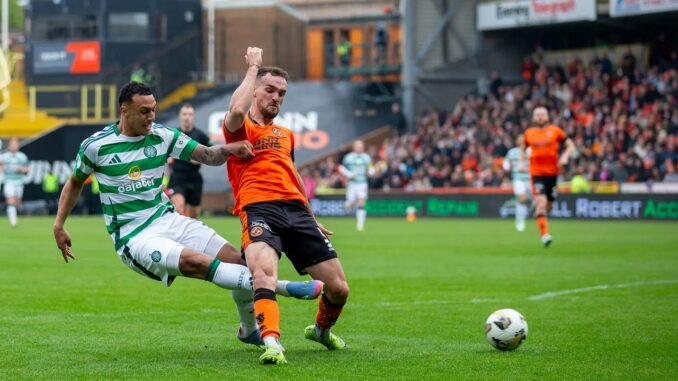
Outrage in Dublin: Widespread Condemnation After a Startling Far-Right Attack on Celtic Supporters
Dublin has been rocked by widespread outrage and condemnation after a disturbing and violent incident targeting Celtic supporters. Reports emerging over the weekend confirm that a group affiliated with far-right extremism launched a shocking attack on fans gathered to support the Scottish club, in what authorities are now investigating as a hate-motivated assault.
The incident has not only horrified local residents but also sparked an urgent national conversation about the rise of far-right sentiment in Ireland, a country long associated with tolerance and inclusivity. Politicians, sports figures, and civil society leaders have joined together to condemn the violence unequivocally, demanding swift justice and stronger measures to counter the growing threat of extremism.
What Happened: A Disturbing Attack on Peaceful Supporters
The attack took place late Saturday evening at a well-known pub in central Dublin, where Celtic supporters — many of Irish heritage — had gathered to watch their team play a crucial match. Witnesses report that a group of around 15 masked individuals, some allegedly wearing clothing with far-right insignia, stormed the venue.
According to eyewitness accounts:
- The assailants shouted xenophobic and sectarian slurs.
- Physical violence quickly followed, with several fans assaulted.
- Chairs, bottles, and other objects were thrown in a terrifying escalation.
- At least five people were hospitalized, with one person reportedly sustaining serious but non-life-threatening injuries.
Police (Gardaí) arrived on the scene swiftly, but the attackers fled before most could be apprehended. Investigations are ongoing, with CCTV footage being reviewed and forensic teams collecting evidence from the scene.
Immediate Reaction: Shock and Outrage
The response from across Irish society was immediate and emphatic.
Tánaiste Micheál Martin (Deputy Prime Minister) called the attack “an abhorrent act of cowardice” and stressed that Ireland “will not tolerate hate-fueled violence under any circumstances.”
Similarly, Justice Minister Helen McEntee pledged a full investigation:
“This was an appalling attack on peaceful fans, rooted in hate and intolerance. We are working closely with Gardaí to ensure that those responsible are swiftly brought to justice.”
Celtic Football Club issued a strong statement:
“Celtic FC stands with our supporters and condemns in the strongest possible terms the disgraceful attack in Dublin. Bigotry and violence have no place in football or society.”
Many fans and community leaders also took to social media to express their solidarity with the victims and call for unity against the forces of hate.
Context: Far-Right Tensions Rising in Ireland
Ireland, traditionally viewed as a progressive nation, has in recent years seen a worrying uptick in far-right activism, often fueled by global trends, social media, and economic anxieties. While the far-right remains a minority fringe, recent protests against immigration and multiculturalism have emboldened extremists.
Experts warn that sporting events and cultural gatherings — like the Celtic supporters’ meet-up — can become flashpoints for politically motivated violence.
“The far-right sees football as a battleground,” said Dr. Aoife Gallagher, an extremism researcher. “Celtic’s proud association with Irish identity and inclusivity makes their fans a target for those who thrive on division.”
Broader Implications: More Than Just Football
This incident highlights a growing concern: how easily sports communities can become entangled in wider social and political struggles.
Celtic supporters, often vocal about Irish heritage, anti-racism, and social justice, have historically been the target of sectarian and political attacks, particularly given the club’s historical connections to Irish Catholic immigrants in Scotland.
Saturday’s assault, therefore, isn’t seen in isolation — it touches on broader questions about Irish identity, nationalism, and resistance to hate.
“When they attack Celtic fans, they attack the values many of us hold dear — community, solidarity, and tolerance,” said a statement from United Against Racism Ireland.
What Happens Next: Calls for Action
In the wake of the attack, there are growing calls for:
- Stronger law enforcement measures against hate groups.
- Increased public funding for community outreach programs to counter radicalization.
- More visible security around public sporting events and fan gatherings.
The Irish government has signaled its intention to fast-track legislation designed to clamp down on hate crimes, a move now seen as even more urgent after the Dublin attack.
Gardaí have also promised a high-profile policing presence at upcoming sporting events to reassure the public and deter further incidents.
Meanwhile, Celtic supporters across Ireland, Scotland, and beyond are planning solidarity rallies and peaceful demonstrations to reaffirm their commitment to tolerance and to show that hate will not win.
Conclusion: A Defining Moment for Ireland?
The attack on Celtic supporters in Dublin marks a dark day for Irish sport and society. But it has also galvanized a powerful response — one that crosses political, religious, and sporting divides.
Ireland now stands at a crossroads: whether to allow extremist violence to take root or to reaffirm, loudly and unequivocally, its commitment to peace, diversity, and solidarity.
As the investigation continues and the victims recover, one message echoes from Dublin to Glasgow and beyond: football is for everyone — hate is not welcome here.
Leave a Reply